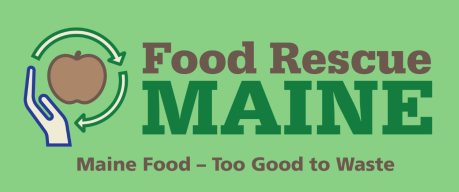Mitchell Center Food Rescue Maine Interns Tackle a Real World Problem
Article by Sonja Heyck-Merlin
Susanne Lee sometimes has to remind Food Rescue MAINE (FRM) partners that they’re working with students. Partners like Maine state government, municipalities, schools, hospitals, and private businesses.
“The students are so good at doing their jobs that I have to remind the partners that they’re actually just students. They might have a paper to write or finals that week,” said Lee, a faculty fellow and member of the Mitchell Center’s Materials Management Research Group (MMRG).
A decade ago, the Maine Department of Environmental Protection (DEP) identified reducing wasted food as a top state priority. MMRG took the DEP challenge seriously and launched projectsto develop and pilot solutions for wasted food and food loss in Maine.
Lee joined MMRG in 2019, and shortly after the team received a Mitchell Center seed grant which funded a group of student researchers. This work identified six solutions for wasted food in Maine.
Another grant from DEP allowed the team to launch the Mitchell Center’s FRM-branded program including a website, social media, newsletter, student research pilots, and an annual wasted food education summit.
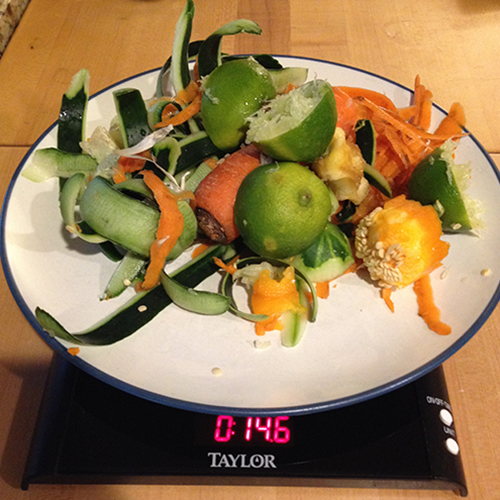
Despite MMRG efforts, it was still clear that Mainers were tossing a lot of food in the trash, but it wasn’t until the Maine Food Loss and Waste Generation Study was published in 2024 that there was finally some data to back this up. The study, coauthored by Lee and Travis Blackmer from UMaine’s School of Economics, showed that each year Maine wastes 361,000 tons of food.
Maine’s wasted food statistics, unfortunately, are not unique. According to ReFED, in 2023, 31% of all food in the U.S. went unsold or uneaten, and most of that ended up as waste. That’s equivalent to 120 billion meals that could have gone to the food insecure, $382 billion (approximately 1.45% of the U.S. GDP), and 24% of landfill volume resulting in 59% of landfill methane produced.
Students have always been at the core of MMRG’s efforts to reduce Maine’s contributions to this vast, complex problem. Lee continues to mentor an ever-changing team of interns — guided by the FRM slogan “Maine Food: Too Good to Waste” — to help communities and organizations create solutions for a sustainable, waste-free, circular food system.
About the interns, Lee said, “Each one of them is blazing a trail that doesn’t really exist because it’s a pilot study. Each study is a little bit different than what’s been done before. These students have undertaken, along with getting their degree, working on this program that makes a difference in these communities and helps them build networks. By the time they graduate, their time at UMaine will yield so much more.”
Gracie Treadwell – Partnering for publicity
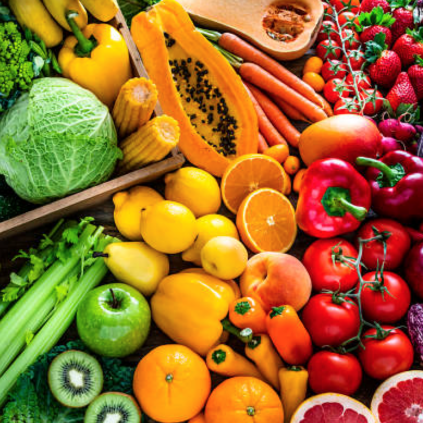
In keeping with the Mitchell Center’s belief in partnerships, FRM has a strong relationship with the USM new media program whose students are required to do a service learning project before they graduate. In 2025, Gracie Treadwell chose to work with FRM. Majoring in communications and media studies, Treadwell put her skills to work as a communications and public relations (PR) intern.
Lee shared FRM’s well-organized guidebook with Treadwell, and she set off running. One of FRM’s focus areas is educating the public on wasted food. FRM has collaborated extensively with Maine schools, conducting research on how much food schools waste and providing solutions like diverting wasted food into compost programs.
Treadwell drafted a press release about one of these school projects that appeared in UMaine News. She contacted local news outlets about the school project, which resulted in one station providing media coverage. Treadwell also helped promote and advertise FRM’s 2025 Wasted Food Solutions Summit, (https://umaine.edu/mitchellcenter/2025-maine-wasted-food-solutions-summit/) and she created social media posts for two of FRM’s partners: Food Waste Prevention Week and the World Wildlife Fund (WWF).
Prior to this internship, Treadwell gravitated toward photography and videography as communication mediums. She valued the opportunity to incorporate writing into her PR campaigns which she thinks will be useful should she decide to apply to law school.
“FRM’s communication has been so great that through this short internship I’ve been able to accomplish a lot of important work. And the skills that I’ve learned are applicable to jobs in so many different fields,” Treadwell said.
Kathryn Busko – Building community through communication
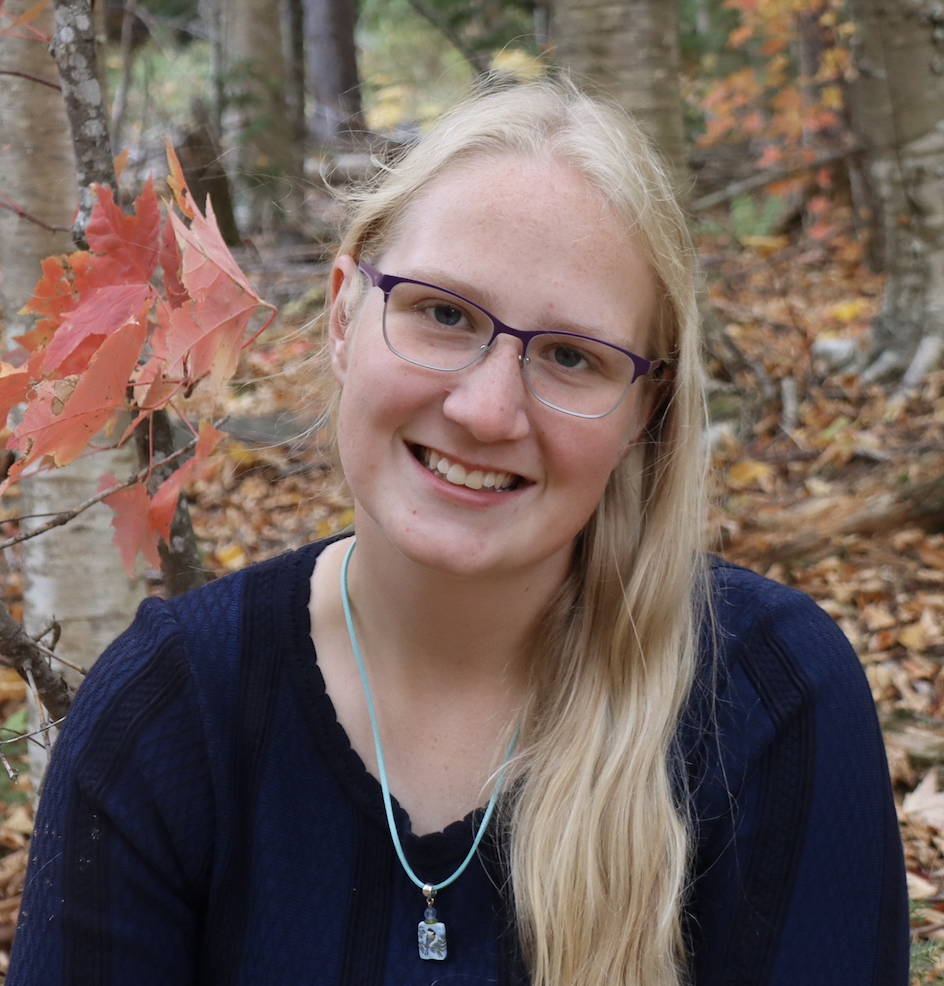
UMaine undergraduate Kathryn Busko who is double majoring in journalism as well as ecology and environmental science (with a minor in French) also worked on FRM’s communication and PR team. Her one-year internship was supported by the Sumner Scholarship Endowment Foundation.
“I’m looking for the connections between the environment and communication and how I can effectively communicate about the environment. This internship really gave me an opportunity to explore that,” she said.
Whether she was working to make FRM’s website more user-friendly, writing blog posts (she wrote one questioning the habit of chucking apple cores in the woods), or creating content for FRM’s Instagram page, the internship helped her polish her skills as an environmental communicator.
In helping create a wasted food toolkit for school nutrition directors and other FRM partners, which brought together elements of FRM’s scientific studies and economics, Busko learned about the power of collaboration on an interdisciplinary team.
Busko also delivered a thoughtful presentation about her communication outreach at the 2025 Maine Wasted Food Solutions Summit, whose list of participants included U.S. Representative Chellie Pingree.
“I am truly honored to have been able to represent the Mitchell Center and the Food Rescue MAINE team at our summit. It’s amazing to have been a part of such an important, collaborative effort,” Busko said.
William Brenneman – Educating our future

As an undergraduate in Wisconsin, William Brenneman worked with a childrens’ museum that was opening a new exhibit in celebration of food. His job was to evaluate the project. “It got me really excited into thinking about food academically but also working with people in the community, especially kids, parents, and educators,” he said.
Now, as a graduate student pursuing a degree in anthropology and environmental policy, Brenneman is taking his prior knowledge and applying it to Maine’s public school cafeterias. During the 2024-25 academic year, as part of his yearlong FRM research assistantship and as a Sumner Intern like Busko, he helped launch the second Maine School Cafeteria Wasted Food Study at four schools — Brown Elementary School in South Portland, Sherwood Heights Elementary School in Auburn, Sugg Middle School in Lisbon, and Easton Elementary School. The study is funded by a WWF Waste Warriors grant.
Brenneman spent the majority of his time trucking up I-95 to Easton Elementary in Aroostook County. After introducing the project to faculty and staff, he presented a kid-friendly, educational assembly about the environmental impacts of wasted food and creative ways to solve the problem.
A few weeks later he went back and asked some follow-up questions at another assembly: What are the best ways to reduce wasted food? Why do we want to keep food out of landfills? Brenneman was impressed by their responses. “It’s very cool when you hear a young child talking about methane or leaching,” he said.
During the cafeteria study, students were asked to sort their wasted liquids and foods in separate containers, squeeze condiments out of bottles rather than single-use packages, place unopened food packages on a “share cart,” and weigh their wasted food before it was trucked away to feed the pigs on a nearby farm.
Brenneman recalled that during a visit to monitor the school’s progress, one kid had just received a sticker for finishing their entire tray. They ran up to Brenneman and stuck the sticker on him and thanked him for his work at the school. “It’s just these cute moments that make it awesome,” he said.
It is this type of hands-on education and interactions with students (and his love of reading and writing) that have Brenneman pondering an eventual career as a professor. He also values the interdisciplinary nature of this study that puts him at the table with economists, a communication team, and others.
“It’s really satisfying. It feels like we are getting closer to finding solutions to these really big, complex problems,” he said.
Megan Sauberlich – Counting the savings
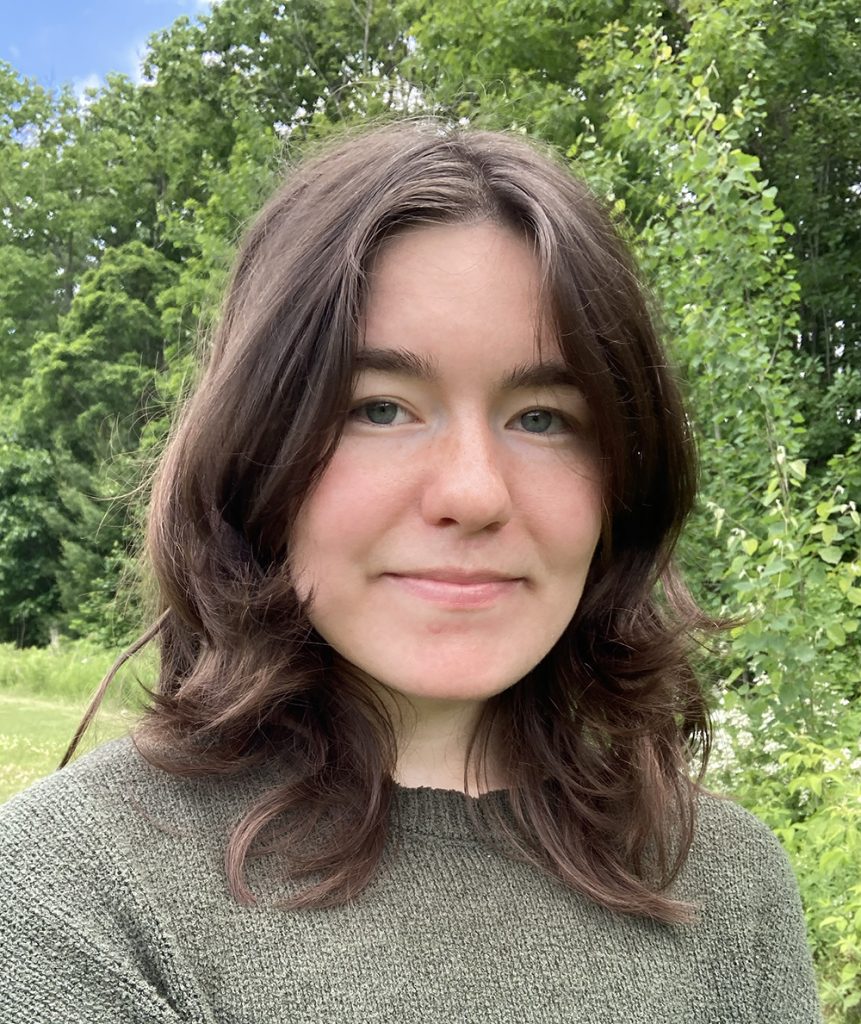
During her year long FRM internship, Sumner Intern Megan Sauberlick studied wasted food through a financial lens. Sauberlich is an undergraduate student majoring in economics with the goal of eventually becoming an environmental lawyer.
Working with Blackmer, Sauberlich began by tracking and measuring wasted food at Northern Light Eastern Maine Medical Center, the second largest hospital in the state. Using these data, she provided the hospital with an analysis of how much food was being wasted and steps that could be taken to end that waste.
Sauberlich then transitioned to a municipal waste study. She created a survey asking municipalities to share information about their solid waste tonnage and disposal costs from 2021-2023. Thirteen municipalities responded to her survey.
She then used a series of Excel graphs to share the results of the study at the 2025 Maine Wasted Food Summit. For example, Sauberlich compared how much municipalities paid to divert their wasted food with how much they would have paid if that wasted food were charged as municipal solid waste. On average, her data showed that diverting wasted food was 43% cheaper. FRM will continue to gather more information from municipalities willing to share their solid waste data, and then analyze the results and set-up regional presentations that promote wasted food solutions.
“It was really satisfying to see that there were economic savings with food waste reduction. A lot of the time you’re either saving money or you’re helping the environment. This project showed that you can do both,” Sauberlich said.
“The research work that these student interns accomplish is great, but it is especially impressive when you realize that they are full-time students going to class, writing papers, taking tests — all while helping Maine communities save money, feed people, and fight climate change with wasted food solutions. Graduating from college is already a major life accomplishment, but these students will leave UMaine with even more to celebrate,” Lee said
The Mitchell Center’s Food Rescue MAINE team is supported by the following organizations:

